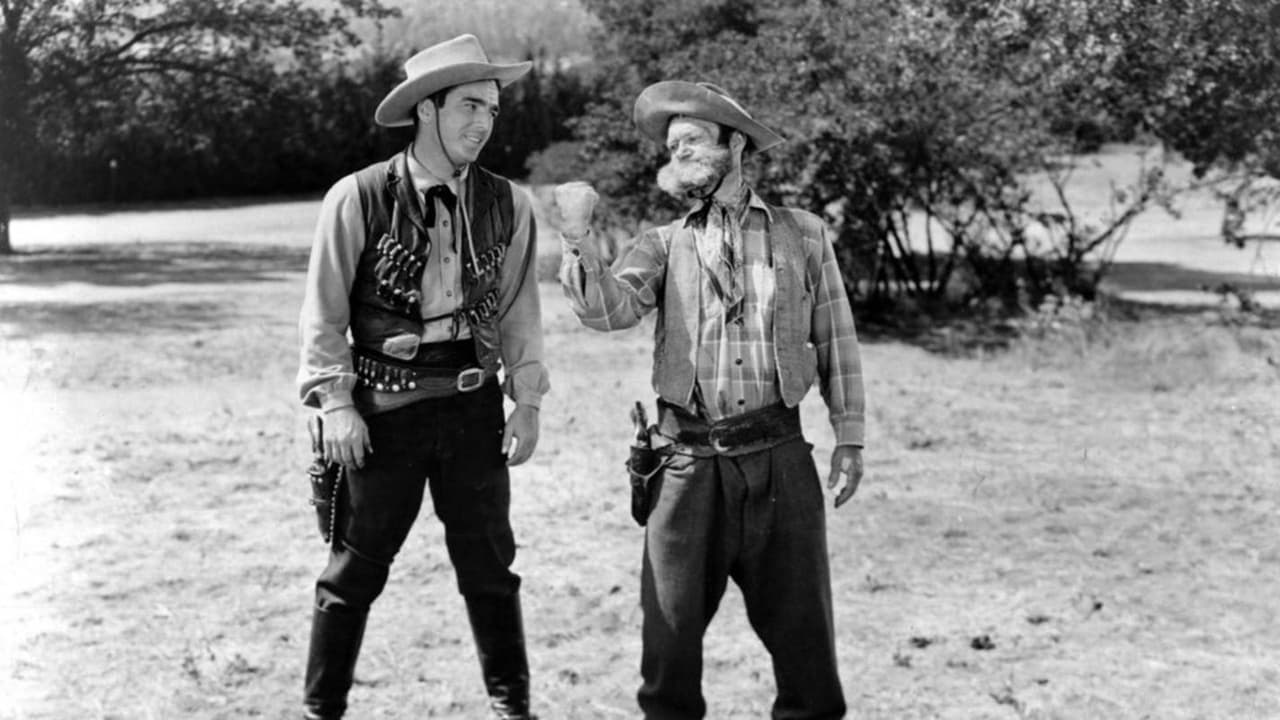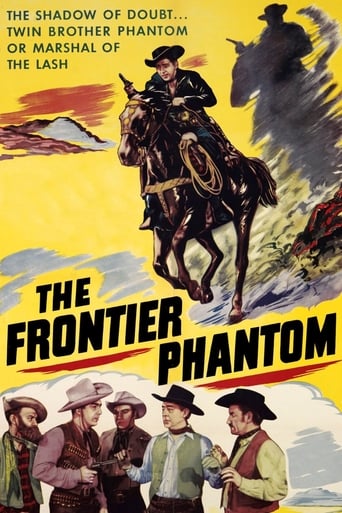Maidgethma
Wonderfully offbeat film!
Redwarmin
This movie is the proof that the world is becoming a sick and dumb place
AshUnow
This is a small, humorous movie in some ways, but it has a huge heart. What a nice experience.
Roy Hart
If you're interested in the topic at hand, you should just watch it and judge yourself because the reviews have gone very biased by people that didn't even watch it and just hate (or love) the creator. I liked it, it was well written, narrated, and directed and it was about a topic that interests me.
dbborroughs
Final Lash La Rue film is pretty much an extended flashback made up most of the earlier film Outlaw Country.The plot of the film has Lash arrested on suspicion of being a bad guy taken to to the sheriff's office Lash relates the tale of the time he was mistaken for his his brother. The story he tells is illustrated from sequences from the earlier film.While the final La Rue films aren't bad on their own terms watching them in close proximity to the earlier films makes seeing them redundant. I had picked up the Echo Bridge collection of 12 La Rue films and proceeded to watch them over two or three days. the trouble arose when I moved to the second DVD which is made up of the later films which while fine on their own terms borrow very heavily from the films that had been released only two or three years before. Had I not watched the films more or less all at once things would have been fine, but seeing this film a day after the other one killed any fun I might have had. If you can see this on it's own you'll like it, but seeing it close to Outlaw Country isn't advised.
DLewis
"The Frontier Phantom" is notable as the final film in Al St. John's canon of 350 or more films that began in 1913 at Keystone, as well as the final film in the regular Lash La Rue western series. One might have wished for a finer farewell for these fellows, but the 1952 material is merely an extended framing sequence for long inserts drawn from the 1949 feature "Outlaw Country." Ironically, the 1952 footage is a little more polished than that of 1949 and has the pacing and style of television. Shortly after this, Ron Ormond created a TV show for Lash La Rue called "Lash of the West" that used a similar format; Lash telling a story about a relative that is illustrated in sequences drawn from preexisting pictures. In the cheater segments, Lash and Al turn in their usual, professional performances and Virginia Herrick puts in a plucky performance as the girl bringing food to the jail where all of the main characters are holed up for awhile waiting for the bad guys. It's mildly entertaining, and certainly not at the level of a great Lash-Fuzzy western as "King of the Bullwhip (1950)." But for fans there is a certain sentimental value in seeing these great B-western characters play out their last parts; while the B-western was still kicking in 1952, it wouldn't be for long. The popularity of drive-ins -- which favored a different kind of B-level entertainment -- drove the B-western onto television briefly, and was then made obsolete by the advent of shows like "Gunsmoke." So this one's mainly for the die-hards, but a well-informed die-hard should thoroughly enjoy this for at least one play.

